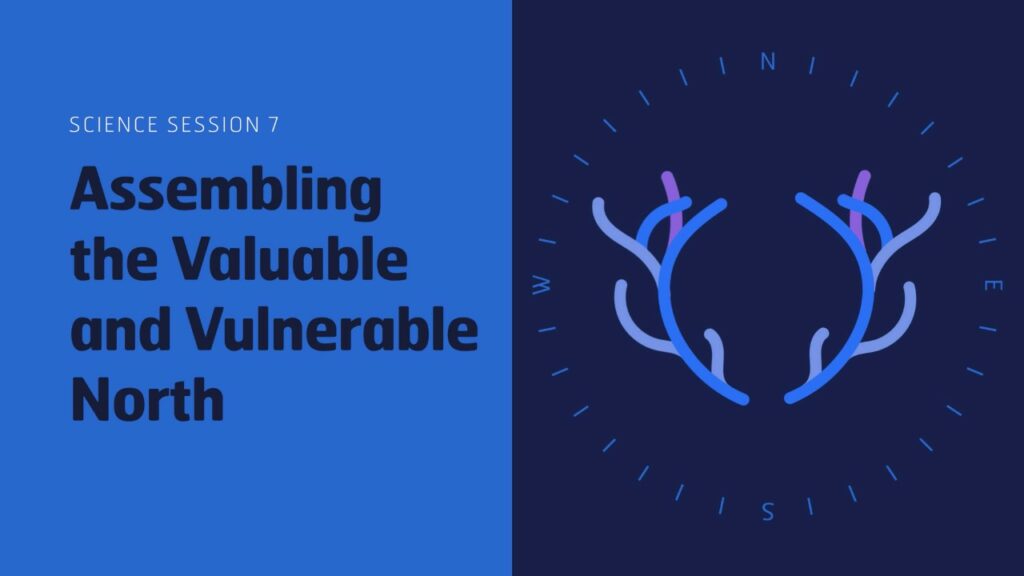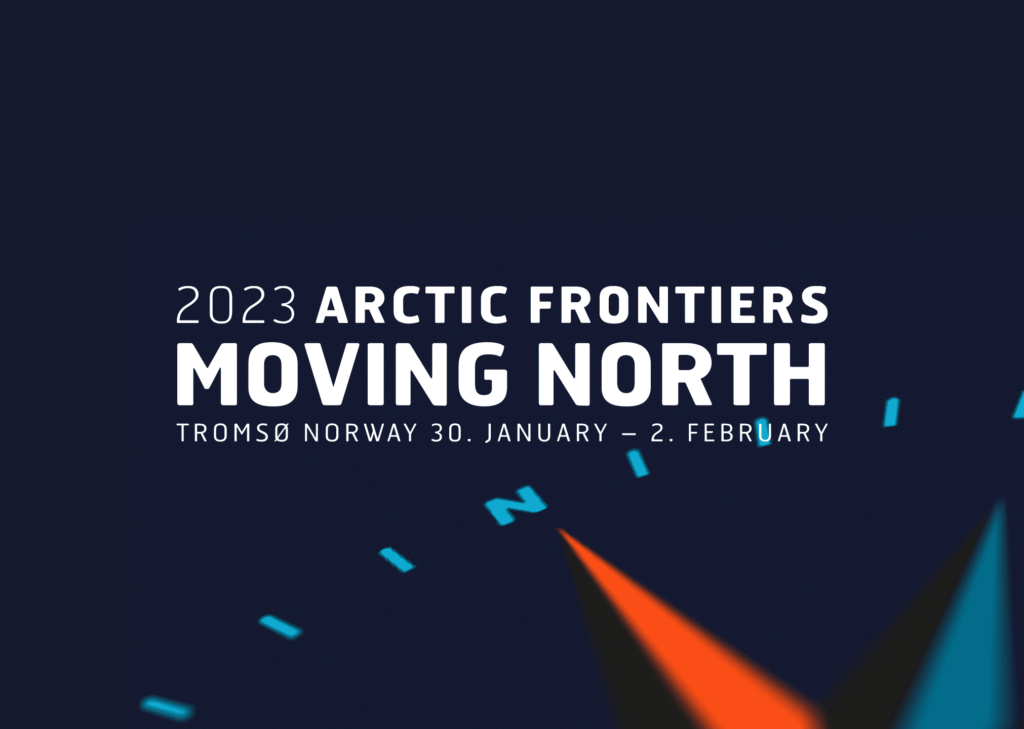
The theme of the 2023 Arctic Frontiers conference was Moving North. The conference had seven Science themes covering a wide range of topics in physical and social sciences. Read more about the sessions here:
All the sessions were recorded and can now be watched for free on our YouTube channel:
Session Details
Session 1: Occupational health and safety in the Arctic
The workforce of the Arctic is affected by a rapidly changing climate, as well as the global economic, demographic, and technological megatrends. The quest for resources, energy, and new trading routes, as well as a changing climate, drive enterprises and people north. Improving Occupational Health and Safety (OHS) is central to reduce adverse health, performance and productivity effects and overall societal costs from climate change. Occupations in the Arctic involve various exposures to physical, chemical, and biological factors. Additionally, the varying climatic conditions and rapid warming of the Arctic will likely increase the rise of adverse effects on worker’s health and well-being. Additionally, workforce demography, digitalisation and urbanisation further affect Arctic occupational health.
This session focused on research related to:
1) Assessment of how temperature and weather impacts work ability, health, and safety. Specifically including determining thermal stress and health risks in the workplace; identifying climate sensitive workers; and assessing human factors in safety critical occupations.
2) Management of occupational health concerns through topics such as knowledge dissemination; developing smart solutions; personal protective equipment for indoor and outdoor workers; developing system thinking for improved OHS. Issues related to adaptation strategies of Arctic workplaces due to the changing climate will also be welcomed.
The session committee for this session was led by Tiina Ikaheimo and Anje Höper, both from the Arctic University of Norway, Tromsø (UiT). The session committee included Hans Pettersson (University of Umeå) and Kirsi Jussila (Finnish Institute of Occupational Health)
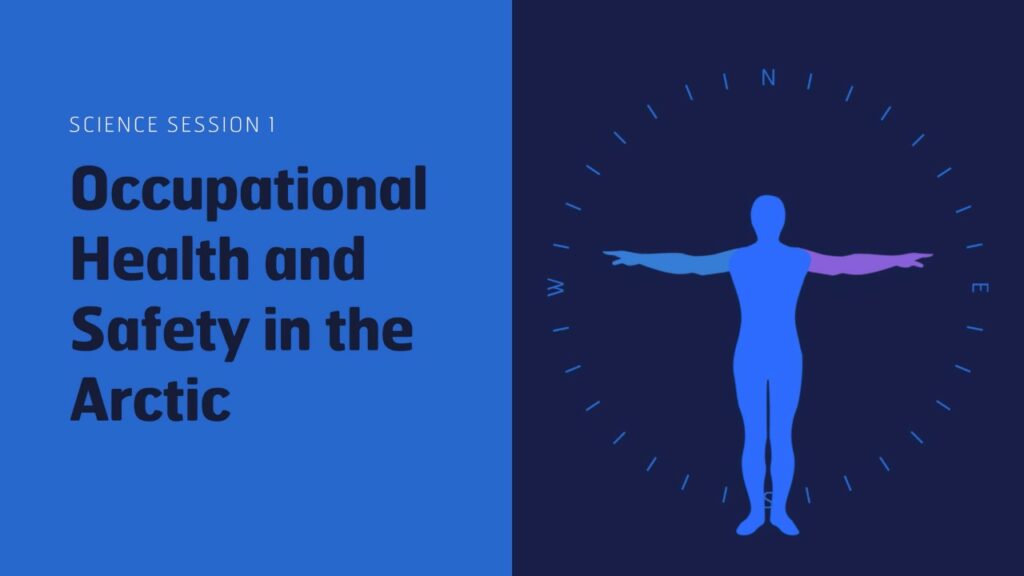
Session 2: City transformation by and for citizens using digital technologies and visualisation
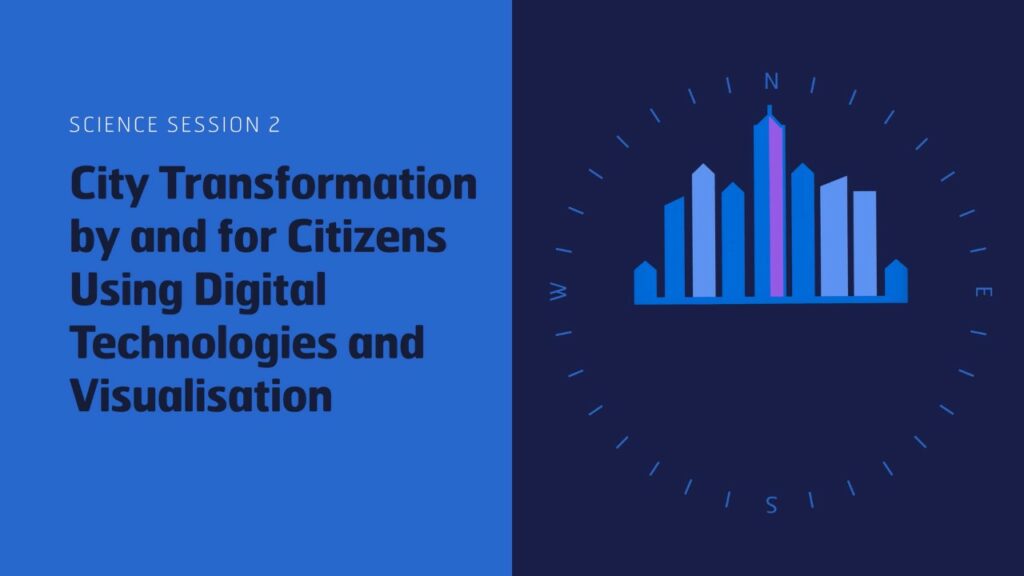
More than 75% of Norwegians, Europeans, Americans and Russians, as well as 55% of the global population, are now city dwellers. Sustainable urban development or ‘smart cities’ require a holistic approach, including digital technologies and visualisations. Citizen engagement and empowerment is crucial for transforming Arctic cities into sustainable, liveable, and resilient environments. Smart and sustainable cities form part of the New European Bauhaus initiative, which is part of the European Green Deal. The European Bauhaus initiative connects science, technology, art and culture, in order to address complex societal issues in a holistic and interdisciplinary format.
This session focused on the role of digital technologies to enhance awareness and knowledge of sustainable urban development, and to strengthen the links and interactions among science, policy, business, citizens, and the natural environment. We welcomed research focusing on zero-emission societies, renewable energy, citizen and public engagement using digital technologies, and urban ecosystems with integrated nature-based solutions. Topics including art, urban planning, high-resolution data analysis and city simulations were encouraged, with the aim of holistic interactions.
The session committee for this session was led by Sobah Abbas Petersen from Norwegian University of Science and Technology (NTNU) and SINTEF and Alenka Temeljotov-Salaj from NTNU. The session committee included Marcus Winter (University of Brighton), Georgios Mylonas (Computer technology institute of Greece), Tone Lise Dahl (SINTEF), Hanne Cecilie Geirbo (Oslo Met University) and Igor Ezau (UiT).
Session 3: Modelling and monitoring challenges to maritime safety in a changing Arctic
Climate change and the retreating sea ice bring both opportunities and new challenges for activity in the Arctic. Larger areas of open water and a lengthening navigation season provide potential benefits to those engaged in transport and logistics, fishing, resource extraction and tourism. However, less sea ice and warmer oceans does not equate to reduced hazards. An ‘ice free’ Arctic is defined as 1 million square kilometres of ice remaining during summer, which becomes thicker multi-year ice in the winter. In addition, increased calving of icebergs from disintegrating glaciers and changing storm tracks, compose a significant hazard to maritime safety. Maritime safety is a key component in ensuring that the Arctic is developed sustainably, through promoting efficient and safe navigation.
This session will explore challenges to maritime safety, both from an operational and research perspective, including sea-ice edge mapping, short-range sea ice and storm forecasting, new ocean monitoring tools and the potential for Artificial Intelligence and Digital Twins for maritime safety. Furthermore, abstracts focusing on risk assessment, recommendations for updating the IMO Polar Code, and engagement with maritime stakeholders are also encouraged.
The session committee for this session is led by Penelope Wagner and William Copeland from the Norwegian Meteorological Institute. The session committee includes Keld Qvistgaard (Danish Meteorological Institute, Denmark), Richard Hall (Equinor, Norway) and Siri Veland (Norce Research, Norway).
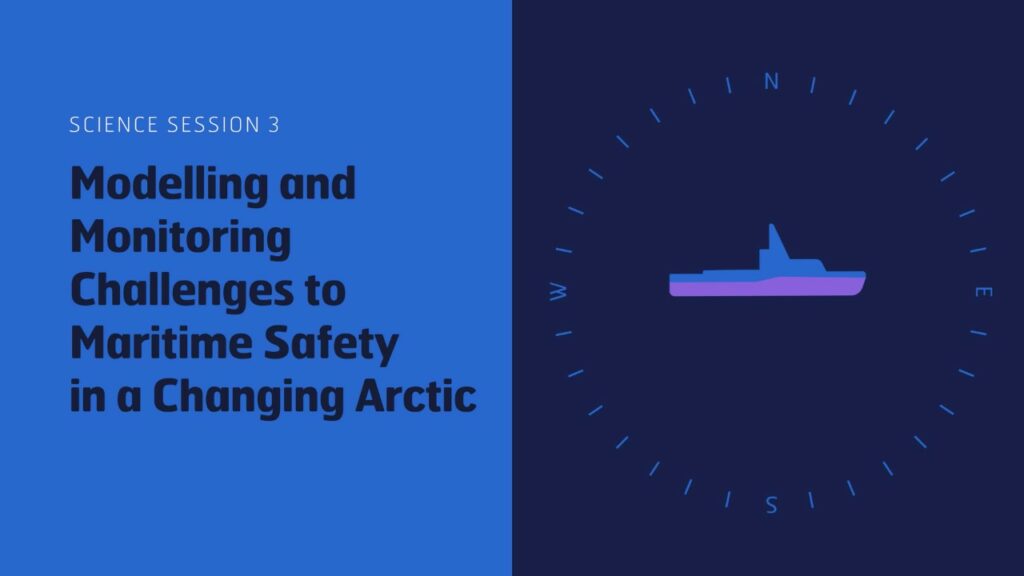
Session 4: Plastic pollution, priorities and perspectives in the Arctic
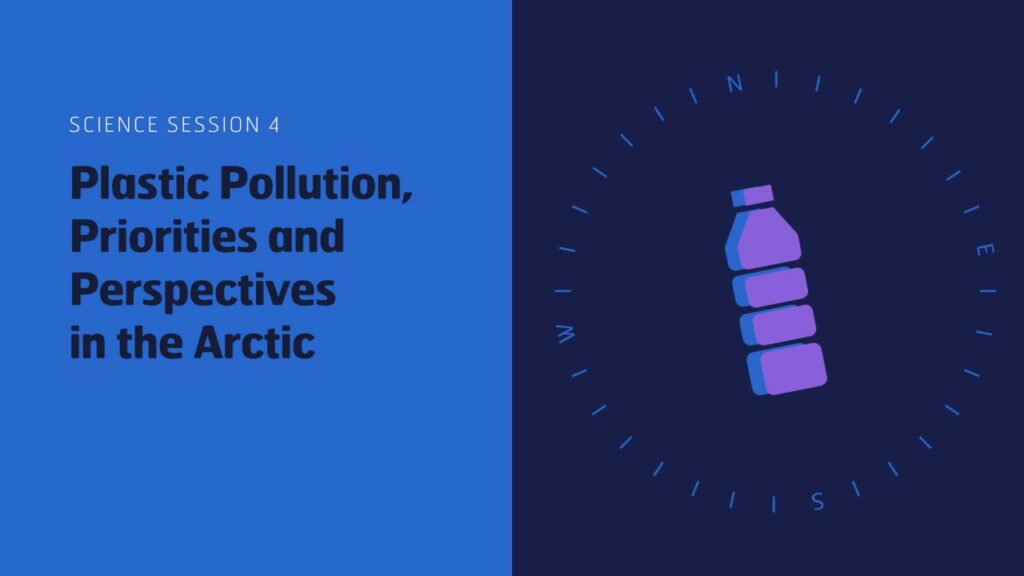
Plastic pollution is now found in the most remote parts of the world, including the Arctic. Plastic is on the seabed, inside the stomachs of marine life, in rivers, on glaciers, and increasingly within the food chain. Amongst many other negative impacts, plastic pollution is a concern for human health, whether ingested through the food chain or leaching of chemicals in water. Despite years of research, international cooperation and guidelines are still limited in controlling plastic pollution in the Arctic, making it difficult to engage stakeholders and adjust policies. This session had three areas of focus :
1) Research focusing on knowledge gaps in how plastic pollution can impact the environment and humans in the Arctic (e.g., consumption of Atlantic cod). Furthermore, the successes and limitations of international cooperation around monitoring and controlling plastic pollution, especially in relation to its impacts on the environment and human health.
2) Technological advances and requirements in monitoring and reducing plastic pollution, including innovative solutions, drones, and start-up technologies.
3) Standardization for progression of science and the measures to tackle plastic pollution. Abstracts focusing on new validation methods, development of guidelines and standards for plastic studies, including similarity in protocols, targeted species, and improving comparability within Arctic plastic research. Finally, we encourage abstracts including data on key species or species of interest for biomonitoring of plastic.
The session committee for this session was led by France Collard from the Norwegian Polar Institute (NPI). The session committee included Dorte Herzke (Norwegian Institute for Air Research, NILU), Amy Lusher (Norwegian Institute for Water Research, NIVA), Jake Martin (NTNU), Jennifer Provencher (Carleton University, Canada) and Jakob Strand (Aarhus University, Denmark).
Session 5: Impacts and adaptations in response to Atlantification/Borealisation of the Arctic Ocean
Atlantification or Borealisation refers to increasing amounts of warm, salty, nutrient-rich, Atlantic Water making its way into the Arctic Ocean. This has already resulted in loss of sea ice, changes to ocean fronts and stratification as well as the distribution patterns of marine species. The typically productive marginal ice zone is retracting northward, shifting its location from over the shallow shelves into the deep basin. This major change has largely unknown consequences for the physical and chemical system, making it difficult to make accurate assessments of future impacts on the marine ecosystem. The delicate balance between ocean stratification and increased mixing is a key factor in understanding future ocean uptake of carbon dioxide, ocean acidification and primary productivity. Reduction of traditional sea ice habitats will impact the ecology of endemic Arctic megafauna. Impacts of habitat reduction will be compounded by changes in the prey base, the northward shift of boreal species that will compete with Arctic species and arrival of new diseases. Shifts in the distribution of marine megafauna (e.g., fish, seabirds and mammals) will require re-thinking of protected areas, shipping routes and development areas to achieve proper conservation practices.
This session welcomed abstracts focusing on the physical, biogeochemical and ecological impacts and adaptations to Atlantification of the Arctic. Specifically, we welcomed research on distributional and ecological changes in megafauna, physical and chemical interactions between ocean fronts, changes in atmosphere-ice-ocean interactions and impacts on other components of the climate system that serve as drivers for biotic change.
The session committee for this session was led by Mats Gronskog and Kit Kovacs both from the Norwegian Polar Institute (NPI). The session committee included scientists from UiT, NIVA, UiB and IMR.
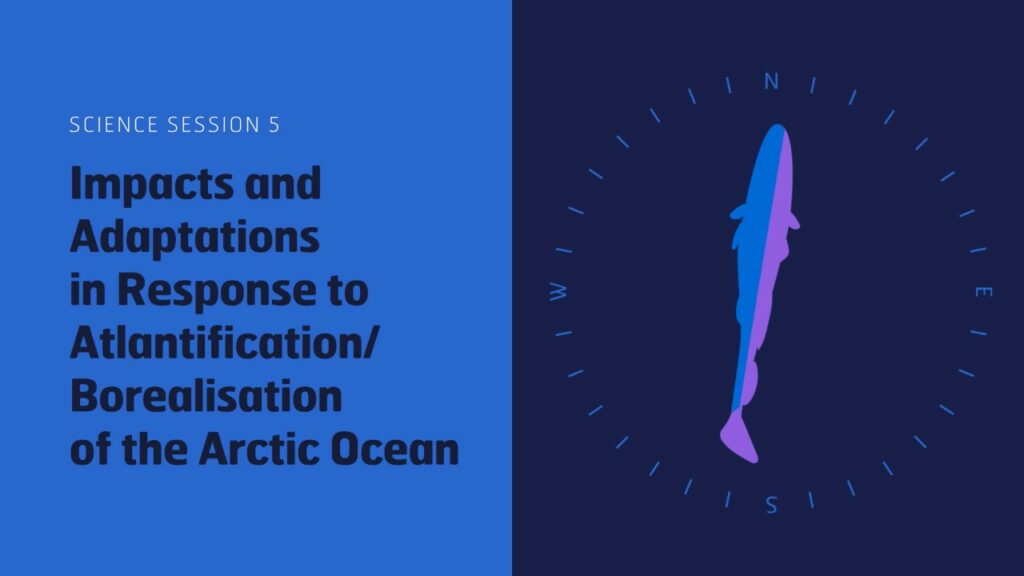
Session 6: Adaptive management of rapidly changing Arctic ecosystems using interdisciplinary and system-science approaches
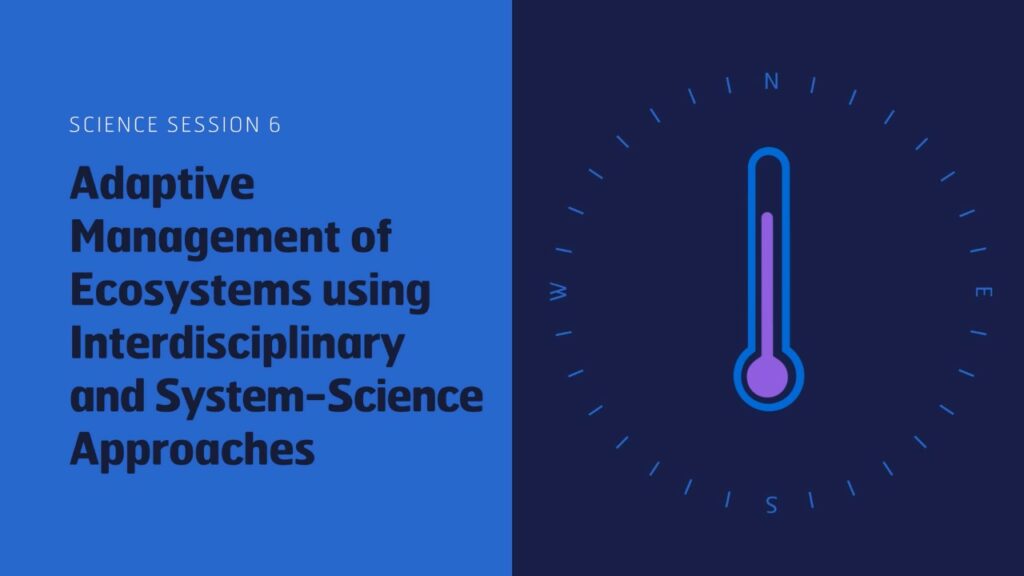
Arctic ecosystems are facing climate change at a pace far higher than the global average. Additionally, the Arctic faces multiple pressures from pollution and intensifying human activities. Ultimately, to safeguard the resilience of the Arctic in the face of multiple pressures calls for adaptive management, requiring increased interdisciplinary and system-science approaches, especially considering the socio-ecological milestones set for 2030 under the Ocean Decade, Paris Agreement and United Nation’s Sustainable Development Goals.
This session sought to gather expertise on interdisciplinary and socio-ecological system approaches that support adaptive management of the Arctic in the face of climate change. We welcomed multi- and interdisciplinary contributions documenting the impact of climate change, singularly or combined with other anthropogenic pressures, on the physio-chemical, ecological, and socio-ecological state of marine and terrestrial Arctic ecosystems. Additionally, we welcomed system-science perspectives that provide integrated insight into ongoing socio-ecological change and resilience, and ways forward for increased effectiveness of science-policy interactions.
The session committee for this session is led by Igor Eulaers from the Norwegian Polar Institute (NPI). The session committee includes Gary Griffith (NPI), Cecilie von Quillfeldt (NPI), Raul Primicerio (UiT) and Niels Martin Schmidt (Aarhus University, Denmark).
Session 7: Assembling the valuable and vulnerable North
Through diverse engagements with nature resource extraction and ecological vulnerability in the contemporary Arctic, contributors to this session welcome visions of resource regimes from both inside and outside the Arctic. The main themes are geopolitical (balancing new and traditional ways of seeing nature), adaptation (future scenarios of the climate region), technology (technical applications to data management) and energy (the future of oil and gas).
The main questions that this session hoped to discuss include: how is the Arctic assembled and visualised across various media, in development and climate scenarios, and among Arctic and non-Arctic states? What particular forms of control over the North emerge through these positionings, and to what effect? We invited a broad set of explorations that include how scientists, policy makers, industry leaders, and local communities ‘see’ development, assess demographic change (e.g., involving workforce shifts, migration, labour patterns, climate change) and experience other impacts to land, sea, and local ways of life.
The session committee for this session was led by Arthur Mason from the Norwegian University of Science and Technology (NTNU). The session committee included Karen Herbert (Carleton University, Canada), and Cymene Howe (Rice University, USA).
